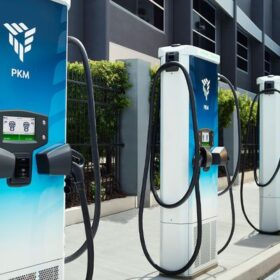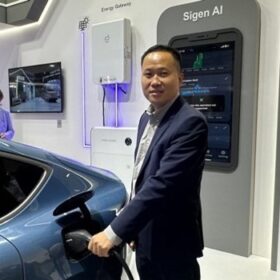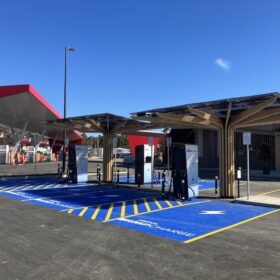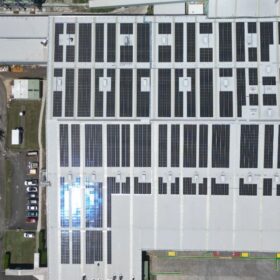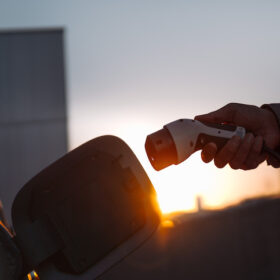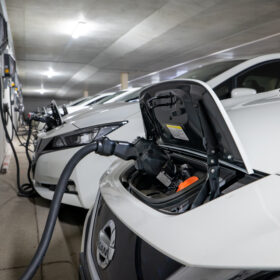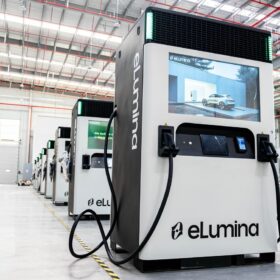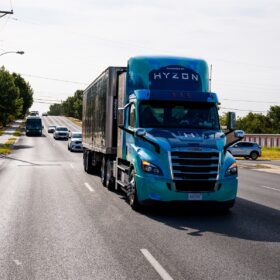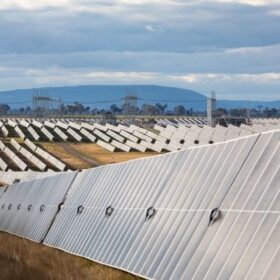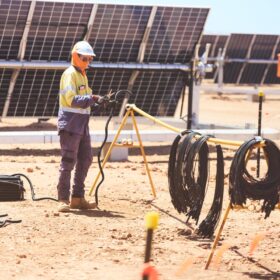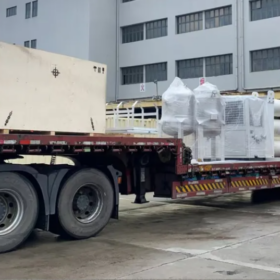Troubled Tritium picked up by Indian EV charger giant
Collapsed Australian electric vehicle fast-charger manufacturer Tritium has been acquired by a subsidiary of India-headquartered power solutions company Exicom Tele-systems as it looks to expand its global footprint.
Sigenergy aims to conquer commercial PV storage market with AI
Sigenergy was one of the first companies to present a bidirectional DC wallbox that is integrated into a photovoltaic storage system. Co-founder and CTO Samuel Zhang talks about the manufacturer’s story and its plans to expand into the commercial market, integrating AI into its systems and the future of vehicle-to-grid technology.
Fuel retailer gets $100 million transport emissions reduction boost
Australian fuel retailer Ampol has committed to a multitude of decarbonisation strategies throughout its service station network, including the roll out of electric vehicle charging stations and rooftop solar, funded in part by the Clean Energy Finance Corporation.
Building materials manufacturer installs 962 kW rooftop solar system
A 962 kW rooftop solar system installed atop building materials manufacturer Etex Australia’s facility at Matraville in New South Wales is expected to satisfy almost 20% of the plant’s energy demand, delivering a return on investment inside three years.
Energy ministers reject nuclear, agree consumers will control their energy needs
Australia’s energy ministers have agreed to the development of the national consumer energy resources roadmap to give consumers control over their energy needs, while unanimously rejecting nuclear as too expensive and too slow to meet emissions targets.
New data exchange shines spotlight on future of consumer energy resources
An industry data exchange co-design is putting consumer energy resources at the beating heart of Australia’s energy marketplace, prompted by a 2050 projection of 86 GW of rootfop solar and 27 GW of flexible demand in the national electricity market.
Queensland and South Australian critical mineral processing plant pilots win grants
Australian producers of critical minerals needed for electric vehicles and lithium-ion batteries have received Australian government grants to a combined $13 million to help build diversified supply chains with the support of partners in the USA, Japan and Republic of Korea.
Electric vehicles can be a line of defence in outage emergencies, research finds
In a world first, researchers at the Australian National University, Canberra, got the grid emergency they needed in February 2024, to provide clear evidence electric vehicles using vehicle-to-grid (V2G) systems can bolster the grid in a blackout.
Australia’s first community lithium battery and EV charger factory opening soon
A $20 million community lithium battery and electric vehicle charger manufacturing facility, developed by Australian company Elumina, is near ready to begin production on Queensland’s Gold Coast.
Hydrogen vehicle maker Hyzon confirms exit from Australian market
United States-based hydrogen fuel cell manufacturer Hyzon has announced it will halt its operations in Australia, citing challenging market conditions and waning government support.
